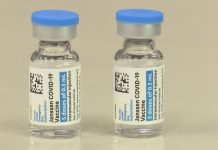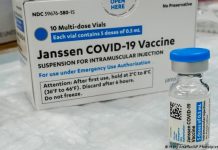Many U.S. veterans returning from service in Iraq and Afghanistan may encounter sexual health problems, a new study suggests.
Almost 18 percent of veterans screened positive for sexual dysfunction in initial visits at the post-deployment clinic at a veterans affairs medical center in Houston, researchers say.
It’s possible the actual prevalence of sexual dysfunction is much higher, because veterans, like many other people, may be reluctant to discuss sex with providers they are seeing for the first time, noted study co-author Dr. Drew Helmer, director of the War Related Illness and Injury Study Center at the Department of Veterans Affairs (VA) New Jersey Health Care System in East Orange.
“Patients are more likely to share their sexual health concerns when they trust their provider or when the provider explicitly asks about sexual health concerns,” Helmer said by email.
To assess sexual health, clinicians asked nearly 250 veterans about these issues as part of routine physical and mental health assessments done at the post-deployment clinic in 2011 and 2012.
On average, the veterans in the study were 31 years old. Most were male and more than half didn’t report having a primary romantic partner.
Veterans responded to a five-item questionnaire rating their level of functioning or impairment in various aspects of sexual health including libido and arousal, orgasms and satisfaction, and erections for men and vaginal lubrication for women. Possible total scores for the responses could range from five to 30, with higher scores indicating more severe sexual dysfunction.
One in four of the veterans reported serious impairment in at least one area, or some difficulties with at least three aspects of sexual functioning, the researchers report in the journal Sexual Medicine.
More than half of the veterans in the study had post-traumatic stress disorder (PTSD) and almost one third had depression. About 11 percent had experienced a traumatic brain injury, and roughly 27 percent had a problem with alcohol use.
Veterans were more likely to report sexual dysfunction if they had depression or PTSD, or if they were female.
Stress related to deployment and returning home can also contribute to sexual health problems for veterans and their partners, Helmer said.
Limitations of the study include the potential for PTSD to be over-diagnosed, because the initial screenings are designed to catch any potential cases, and some of these cases are ruled out during follow-up visits, the authors acknowledge.
Researchers also lacked data on the timing of prescription medication use, which might impact sexual functioning to the extent that drugs have sexual side effects.
Even so, the findings add to a growing body of evidence linking post-deployment problems such as depression or PTSD to sexual dysfunction, Dr. Benjamin Breyer, a researcher at the University of California, San Francisco, said by email.
Compared to the civilian population, veterans can face more mental health challenges and have increased rates of PTSD and depression, noted Breyer, who wasn’t involved in the study.
PTSD can lead to decreased sexual satisfaction for both men and women, and medications used to treat depression can lead to erectile dysfunction, decreased libido and delayed ejaculation, he added.
“Compounding these physiologic issues are complex social and relational challenges that meet the veteran when they return home to established relationships,” Breyer said. “If you’re suffering from depression or PTSD, it’s more difficult to relate to your spouse, which can strain the relationship and diminish sexual wellness.”
SOURCE: bit.ly/1Hv8sAf Sexual Medicine, published online November 2, 2015.












